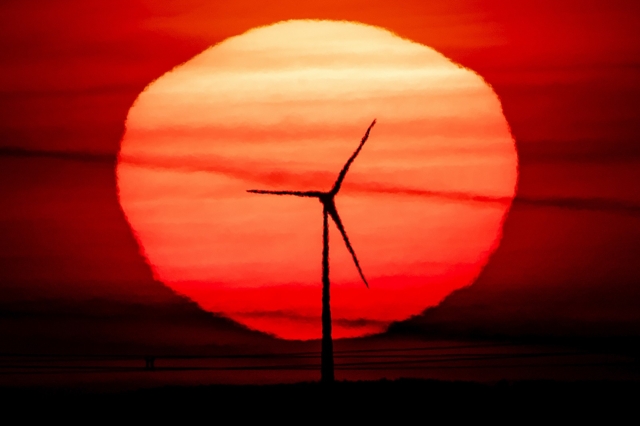
Analysts estimate that the new composition of the European Parliament will be less sensitive to the climate and the necessary policies for the rapid energy transition.
In 2019, when the roughly 450 million citizens of the 27 member states of the European Union went to the polls to choose a parliament for the continent, the dominant narrative was green growth and the climate debate. .
This strong grassroots support for pro-environmental candidates and parties led to the European Green Deal, as well as ambitious targets for reducing greenhouse gas emissions (in all sectors to zero by 2050). Also in a sweeping nature restoration law requiring member states to repair damaged ecosystems.
Five years later, the scene has changed. On the one hand the pandemic and on the other the war in Ukraine, the energy crisis as well as the inflationary one have changed the geopolitical balances, the priorities and also the political agenda.
The green rhetoric has receded, in the new European Parliament there is a clear shift to the right, the extreme right has strengthened significantly and abstention has recorded historically high rates.
Analysts estimate that thenew composition of the European Parliament will be less sensitive to on climate, tougher on immigration and characterized by fragmentation that will make decision-making on many key issues difficult.
The pro-European center-right, center-left, liberal parties and the Greens maintain the majority, but with a strength significantly reduced compared to the 488 in the outgoing Parliament. In terms of the Green Deal most of the legislation has already been passed into law and it is now up to EU countries to implement it.
Regarding this, Chris Rosslowe, senior energy and climate data analyst in Ember, he tells Energy Monitor: “As the Green Deal is now in the implementation phase, individual member states, rather than the new European Parliament, will have more influence on progress towards climate goals.”
However, the stakes it's big. Some people think the Green Deal makes life difficult. Others worry about signs of a deindustrializing continent. Still more are increasingly worried about their countries' energy security.
The European elections also mark a series of changes regarding the various EU institutions, whose decisions determine energy policy to a greater or lesser extent. And the decisions that will be taken in the next period are expected to be decisive for the developments regarding energy policy.
To the European Commission
Appointed by the European Commission responsible for energy is the Energy Commissioner. After the elections, each member state must appoint a new Commissioner who will be confirmed by the new MEPs. This means that the candidate must receive the approval of a majority of Parliament before taking up the post of Energy Commissioner.
However, as Eurelectric points out, not everything is changing, as the executive agency responsible for energy, the Directorate-General for Energy, or ENER, will largely retain the same technocratic staff. Given the impact of energy on climate change, energy policy is also covered by a Directorate-General for Climate Action and a Commissioner for the Environment. In this way, energy policy is influenced mainly in the form of the initial proposals coming from the Commission, which will be colored by the priorities of the party in charge, both in the position of the Commissioner and indirectly by the Parliament that enabled them to get there.
In the European Parliament
As underlined by Eurelectric Parliament can influence energy policy in two ways. The most technical way is the committee of MEPs responsible for Industry, Research and Energy Legislation (ITRE Committee) and Environment, Public Health and Food Safety Legislation (ENVI Committee) . This is where legislative proposals are amended.
The coalitions formed will determine not only how many committee seats are allocated to political parties, but also who is in charge. Legislation coming from committees will therefore be subject to the ideological views of the MEPs sitting on the committee, and therefore amendments will reflect this.
In general, the composition of Parliament in the whole also affects who should support the final legislation to be passed. The average ideological views of the MEPs in the Parliament therefore dictate how progressive or conservative the legislation that can and cannot be passed will be.




